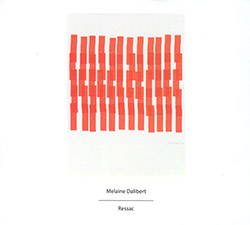
Two beautiful piano solos in an open-ended modular form, written and performed by the young French composer Melaine Dalibert, who also played on Giuliano d'Angiolini's "Cantilena", using space, sustain and unhurried progressions to create hypnotic and resonant environments that captivate in ways reminiscent of Morton Feldman.
Out of Stock
Quantity in Basket: None
Log In to use our Wish List
Shipping Weight: 3.00 units
Sample The Album:
Melaine Dalibert-piano, composer
Click an artist name above to see in-stock items for that artist.
Label: Another Timbre
Catalog ID: at111
Squidco Product Code: 24079
Format: CD
Condition: New
Released: 2017
Country: UK
Packaging: Cardboard Gatefold
"En Abyme" recorded July 9th, 2014, by Antoine Pincon.
"Ressac" recorded April 14th, 2015, by Melaine Dalibert.
"Everyone knows the first movement of Beethoven's so-called "Moonlight Sonata," but fewer are aware that Beethoven wanted the sustain pedal held down for the entire first movement. This is very difficult to do convincingly on a modern piano, but on an instrument of Beethoven's time, which doesn't sustain as long, it is quite an extraordinary effect. These two piano compositions, performed by their composer Melaine Dalibert, also use the pedal throughout the vast majority of the music, creating a world of magic and mystical beauty.
Of course, the French composer's achievements go far beyond simple employment of the sustain pedal. Much, if not all, of the slowly unfolding music is comprised of single notes that melt together to form ghost sonorities of extraordinary beauty and a surprising clarity of harmonic intent. The relatively brief opening piece, "En abyme," is almost conventionally orderly when its framework of repetitions and resolutions become clear. Yet, all of this is achieved one pitch at a time, any sense of preconceived order and familiar drama shattered by each semisoft pitch as it joins the others already fading beyond easy recognition. Beethoven's moonlight principle has been simultaneously simplified and enhanced, creating a nearly audible world of orchestrally morphing harmony that never quite materializes. There are thirds, fifths and sixths among other intervals in play, like some of the early contrapuntal devices Webern would use to unify his pieces, but all reference to the standard canon stops there. Maybe only the Wandelweiser composers would constitute a useful point of comparison in terms of dynamics and maximal use of minimal material, but even that would be highly debatable.
"Ressac," taking the better part of an hour, ups the ante. Again, the vast majority of it is woven of single tones, and I only qualify the statement because I can't remember any dyads or clusters. Yet, the music's glacial pace is amplified, and the harmonic language resulting from pedal and sustain is even more adventurous. Chromatics are gradually introduced and what could cheekily be called a "melody" wends its slinky tortoise-y way along its path of disjunction and recurrence. If there are formulaic repetitions, as in the opening piece, they are difficult to spot on the first few listens.
Like a virus, the music is infectious. It produces an initial sense of fascination, scales the heights of something bordering incomprehension and even disconcertion, and then, it becomes an environment in which to explore sonic subtleties. A tone thought to have disappeared fades softly back into focus; microcosmic relations between two tones and a ghosted third are foregrounded. In other words, what is listener-invested pays huge dividends with patience. Dalibert creates a gloriously quasi-accessible universe of relationships which, for those travelers so inclined, is well worth inhabiting."-Marc Medwin, Dusted
Get additional information at Dusted
Artist Biographies
• Show Bio for Melaine Dalibert "Melaine Dalibert is a French pianist and composer born in 1979. After studying piano in Rennes and Paris conservatories (with Joël CAPBERT and Pierre REACH), he dedicates himself to contemporary art creation as a performer (première pieces from Gérard Pesson, Giuliano D'Angiolini, Tom Johnson, Ahmed Essyad among others) while initiating a persona composition work based on rigorous generative systems. Melaine shares preoccupations with visual artists such as François Morellet, Véra Molnar or Marcel Dinahet, whom he has collaborated with, and his music is deliberately emancipated from any narrative purpose in order to highlight combinatorial games vacillating between order and chaos. His creations have been radio transmitted (France Musique) and played in many French and foreign museums and contemporary art centers." ^ Hide Bio for Melaine Dalibert
11/20/2024
Have a better biography or biography source? Please Contact Us so that we can update this biography.
Track Listing:
1. En Abyme 10:25
2. Ressac 49:58
Compositional Forms
Piano & Keyboards
Solo Artist Recordings
New in Compositional Music
Search for other titles on the label:
Another Timbre.


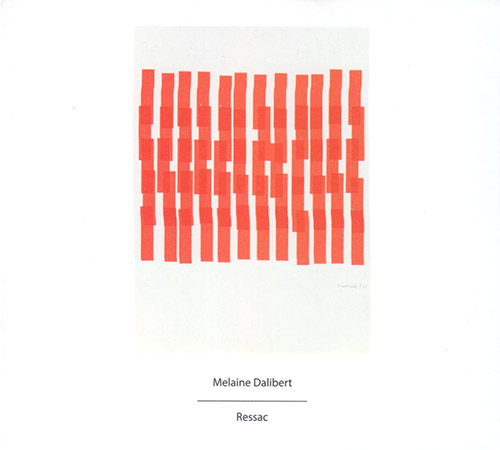
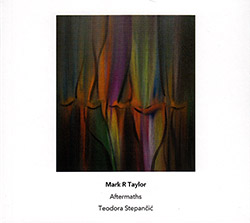






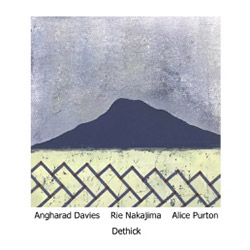
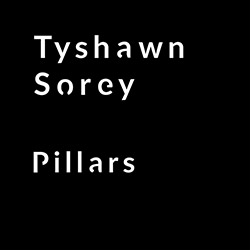


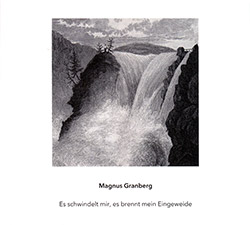
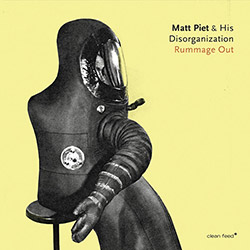












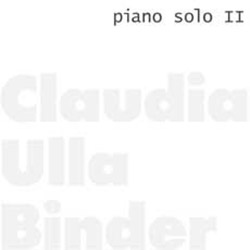


![Guy, Barry / Ken Vandermark: Occasional Poems [2 CDs]](https://www.teuthida.com/productImages/misc4/34849.jpg)
![Novoa / Carter / Mela Trio: Vol.1 [VINYL]](https://www.teuthida.com/productImages/misc4/35236.jpg)


![Elephant9 : Mythical River [VINYL]](https://www.teuthida.com/productImages/misc4/34624.jpg)
![Evans, Peter (Evans / Eldh / Black): Extra [VINYL]](https://www.teuthida.com/productImages/misc4/35279.jpg)

![McPhee, Joe: Straight Up, Without Wings [BOOK]](https://www.teuthida.com/productImages/misc4/35454.jpg)
![Jeck, Philip: rpm [2 CDs]](https://www.teuthida.com/productImages/misc4/35455.jpg)













![Barker / Parker / Irabagon: Bakunawa [VINYL]](https://www.teuthida.com/productImages/misc4/35533.jpg)
![Blaser, Samuel / Marc Ducret / Peter Bruun: Dark Was The Night, Cold Was The Ground [VINYL 10-inch]](https://www.teuthida.com/productImages/misc4/35492.jpg)








![Warren, Kenny (Warren / Hoffman / Ellman): Sweet World [VINYL]](https://www.teuthida.com/productImages/misc4/35451.jpg)




![Blake, Ran / Dave Knife Fabris: Live Amsterdam 2006, First Visit [CD + POSTCARDS]](https://www.teuthida.com/productImages/misc4/35275.jpg)













![DNS: Taking Big Bites Of The Khandas Three Cafes Deep [2 CDs]](https://www.teuthida.com/productImages/misc4/35334.jpg)




![Cleaver, Gerald: The Process [VINYL]](https://www.teuthida.com/productImages/misc4/34966.jpg)




![Alva Noto: HYbr:ID II [VINYL 2 LPs]](https://www.teuthida.com/productImages/misc4/35201.jpg)

![Baron, Derek / Luke Martin: Distinct and Concealed [CASSETTE + DOWNLOAD]](https://www.teuthida.com/productImages/misc4/35079.jpg)

![Lyle, Erica Dawn : Colonial Motels [CASSETTE + DOWNLOAD]](https://www.teuthida.com/productImages/misc4/35080.jpg)









![Sanna, Claudio: Compositori Sardi Contemporanei II [2 CDs]](https://www.teuthida.com/productImages/misc4/35317.jpg)







![Zurria, Manuel: Fame di Vento [3 CDs]](https://www.teuthida.com/productImages/misc4/35167.jpg)

![Granberg, Magnus / Nattens Inbrott / Skogen: Holde Traume, Kehret Wieder! [2 CDs]](https://www.teuthida.com/productImages/misc4/35038.jpg)
![Frey, Jurg: Outermost Melodie [2 CDs]](https://www.teuthida.com/productImages/misc4/35039.jpg)

![Pavone, Jessica: Reverse Bloom [VINYL]](https://www.teuthida.com/productImages/misc4/34895.jpg)




![Modney (Modney / Wooley / Gentile / Roberts / Pluta / Symthe / ...): Ascending Primes [2 CDs]](https://www.teuthida.com/productImages/misc4/34852.jpg)









![Elephant9 with Terje Rypdal: Catching Fire [VINYL 2 LPs]](https://www.teuthida.com/productImages/misc4/35355.jpg)
![Deerlady (Obomsawin, Mali / Magdalena Abrego): Greatest Hits [VINYL]](https://www.teuthida.com/productImages/misc4/34876.jpg)




![Haino, Keiji: Black Blues [2 CDs]](https://www.teuthida.com/productImages/misc4/35109.jpg)



![Surplus 1980: Illusion of Consistency [CD]](https://www.teuthida.com/productImages/misc4/35069.jpg)
![Staiano, Moe: Away Towards the Light [VINYL + DOWNLOAD]](https://www.teuthida.com/productImages/misc4/35037.jpg)



![Caveira (Gomes / Sousa / Abras / Ferrandini): Ficar Vivo [VINYL]](https://www.teuthida.com/productImages/misc4/34643.jpg)
![Gregg, J. J. / David Van Auken: Lunar Prairie [CD w/ DOWNLOAD]](https://www.teuthida.com/productImages/misc4/34611.jpg)

![Coultrain: Mundus [VINYL]](https://www.teuthida.com/productImages/misc4/32439.jpg)
![Mattin: Songbook #6 [VINYL]](https://www.teuthida.com/productImages/misc4/27317.jpg)
![Punkappella: Wake Up [7-inch VINYL]](https://www.teuthida.com/productImages/misc4/17519.jpg)
![Residents, The: WARNING: UNiNC.: Live And Experimental Recordings 1971-1972 [VINYL 2 LPs]](https://www.teuthida.com/productImages/misc4/31521.jpg)
![Coultrain: Phantasmagoria [VINYL]](https://www.teuthida.com/productImages/misc4/30142.jpg)
![Lennon, Sean Ono: Asterisms [VINYL]](https://www.teuthida.com/productImages/misc4/34517.jpg)

![Coley, Byron: Dating Tips for Touring Bands [VINYL]](https://www.teuthida.com/productImages/misc4/17906.jpg)

![Lost Kisses: My Life is Sad & Funny [DVD]](https://www.teuthida.com/productImages/misc4/lostKissesDVD.jpg)